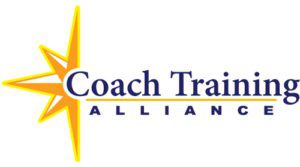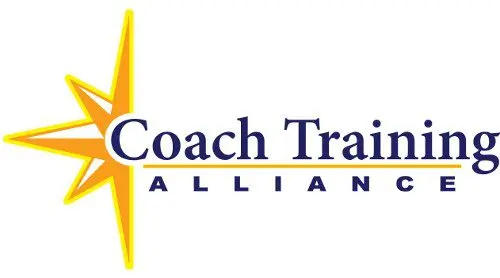Explore Coaching
What if you had the chance to walk away from what you’re doing now and open the top home business of the century?
Unlimited Opportunities in Coaching
Paul Edwards, co-author of “The Best Home Businesses for the 21st Century,” declares personal coaching one of the top home businesses of the century. Imagine—finally—being in the right place at the right time.
So why has the profession of coaching grown so exponentially? One reason is because corporations no longer reward loyalty and hard work with lifetime employment. There are many other reasons. Let’s explore this golden opportunity.
Top Invis
Your content goes here. Edit or remove this text inline or in the module Content settings. You can also style every aspect of this content in the module Design settings and even apply custom CSS to this text in the module Advanced settings.
What is coaching?
Coaching is a professional service providing clients with feedback, insights, and guidance from an outside vantage point. The profession of coaching is similar to the practice of a physician, attorney, or psychologist.
The major difference is that coaching is an on-going collaborative partnership built on taking action. In this powerful alliance, clients find themselves:
- Doing more than they would on their own
- Taking themselves more seriously
- Creating momentum and consistency
- Taking more effective and focused actions
- Becoming more balanced and fulfilled
People hire a coach when they are making a career transition, starting a new business, feeling dissatisfied, re-evaluating life choices, or simply looking for personal and professional breakthroughs.
What is the best way to get started as a coach?
Gather information, just as you are doing now, and line up your support systems. It will take some time to get everything into place. You are about to become an entrepreneur. Don’t quit your “day job” right away. Give yourself time to develop a successful coaching practice.
With this in mind, the Coach Training Alliance (CTA) offers proven coach training so you can learn better, faster, and more thoroughly than any other training program.
Make a commitment to yourself to do what it takes to become a coach. Enroll in the coach training program that best suits your needs and will enable you to win clients quickly! You’ll find several options from which to choose.
What kind of training do I need?
Find a program that builds on what you already know and the skills and abilities you already have. There’s no sense (and no fun) in starting at the bottom. And there’s nothing more boring than sitting through classes where you are way ahead of the instructor.
You want training that answers the questions:
- What skills do I need and how do I develop them?
- How do I establish my business and get clients?
- How do I set up a coaching relationship with my client?
- What happens in coaching sessions?
- How do I manage my clients?
These are all subjects are explored in-depth in the CTA Certified Coach Program.
Do I need to be certified in order to coach?
Certification is not required in order to begin coaching clients for a fee. Good training, however, will show you multiple ways of engaging people in positive experiences that show you at your best. What prospects and clients care about most is what you can do for them.
Some individual training organization and associations offer their own certifications. Each vary in terms of time, fees, and examinations required.
For some programs it can take years and quite an investment to get all the pieces in place. It’s most important, at this time, to be sure coaching is the right fit for you without spending an excessive amount of time or money.
This link will take you to the Certified Coach Program that is the shortest in duration and requires the smallest investment while providing comprehensive coach training.
Can I make a good living as a coach?
Yes. Consider that with as few as 15 regular clients, a diligent coach can earn $50,000 a year working from home just a few days a week.
According to an International Coach Federation report, the 2016 ICF Global Coaching Study, there were about 17,500 coach practitioners in North America in 2015. Coach practitioners, a designation that excludes athletic or sports coaches, reported an average annual income from coaching of about $61,900. (The median annual wage for all workers was $36,200 in May 2015, according to BLS.), https://www.bls.gov/careeroutlook/2017/youre-a-what/life-coach.htm
Certain specialty coaches earn considerably more. Your financial success depends on your ability to take consistent action and your willingness to promote yourself.
The field of coaching is in its youth and moving rapidly towards world renown. Considering just about everyone can benefit from having their own coach, the number of new coaches needed over the next few years will multiply.
Is there someone I can speak with to ask additional questions?
Yes, you can speak with us toll-free at 888-291-30251 or reach out to Director of Admissions, Lisa Pisano, directly at 303-991-0388. Make sure to join the Becoming a Coach teleclass orientation, available to everyone even if you’re not a CTA student. If you decide to continue with the Certified Coach Program, you’ll already be on your way to graduation.
Top Invis
Your content goes here. Edit or remove this text inline or in the module Content settings. You can also style every aspect of this content in the module Design settings and even apply custom CSS to this text in the module Advanced settings.
What kind of background should I have?
There are as many types of coaches as there are people. Coaching is where your life experience, business expertise, and people skills count for something.
Coaches come from a wide variety of backgrounds including: corporate, education, consulting, communications, law, health care, and others.
Ten Attributes of Successful Coaches
- Have a strong sense of self, value themselves intrinsically, are confident and show up authentically.
- Willing to evolve and develop themselves.
- Listen at the deepest levels, know how to filter out their own emotions, judgments and conclusions.
- Genuinely curious about people, have a healthy sense of humor and humility.
- Live from high personal integrity, walk their talk, tell the truth, know how to get their own needs met.
- Open to, not attached to outcome, can make themselves blank for the client’s agenda and solutions to emerge.
- Financially stable, think and act like an entrepreneur and business owner.
- Balanced in life, have a strong support system.
- Have good boundaries, knows that the client knows what is best for them.
- Intuitive, courageous, creative, willing to take the chance of being wrong.
- Becoming A Coach
Become a life coach with Coach Training Alliance
Chances are you already know a great deal of what it takes to be a good coach. There is an equally good chance there are some things that will hold you back—or stop you altogether— without the proper instruction.
We all have “pockets of ignorance.” This is not a bad thing. After all, we can’t be experts in everything. The goal is to discover how many pockets and how deep those pockets are.
If you’re the person people instinctively come to for help and support, or for a shoulder to lean on, you’re probably already “coaching” at a certain level.
I have no formal coaching experience. Will I be able to do this?
You may be saying, “I know I could be good at this and I’m convinced I will be a great coach one day. But how do I get there from where I am now?”
There’s no better way to do it except to immerse yourself in the process and gain experience. Some schools will have you go through years of training, spend thousands of dollars, and graduate BEFORE you begin coaching real clients.
The best training ground is actual coaching in real-world situations. You can immediately apply your newfound knowledge directly with real clients. CTA training programs allow you to put your new skills in context, try them out, and make them relative to your previous experience.
If you wait to start coaching until you have mastered it, you’ll never begin. That is, after all, why they call it a practice.
What should I look for in a coach training program?
Good training doesn’t need to be expensive or take years to complete. A good coaching program combines:
- Quality curriculum and resources you can read and discuss in class
- Practical information on coaching skills, marketing and being an entrepreneur
- A community of other coaches where you can share ideas, wins and challenges
- A safe environment where you can coach and get valuable feedback about your coaching.
Choose your coach training based on the program offerings, your instinct, and your personal experience with the course orientation and your communication with the instructors of the training organization.
Choose a program that will do four things for you:
- Provide a structure with an easy to follow learning sequence.
- Place you in a learning environment with other coaches and mentors.
- Facilitate and support client acquisition and income generation.
- Immerse you in real-world training that is practical, not theoretical.
Do I need to be certified in order to coach?
Certification is not required in order to begin coaching clients for a fee. Good training, however, will show you multiple ways of engaging people in positive experiences that show you at your best. What prospects and clients care about most is what you can do for them.
Some individual training organization and associations offer their own certifications. Each vary in terms of time, fees, and examinations required.
For some programs it can take years and quite an investment to get all the pieces in place. It’s most important, at this time, to be sure coaching is the right fit for you without spending an excessive amount of time or money.
This link will take you to the Certified Coach Program that is the shortest in duration and requires the smallest investment while providing comprehensive coach training.
Will I need to market my coaching practice?
Yes, but not in the traditional sense. In fact, traditional sales, marketing, and advertising techniques aren’t generally effective for coaches.
Marketing your professional services, when done correctly, is inexpensive and often times free. Since this is such an important—yet sometimes overlooked—aspect of your coaching practice, CTA incorporates business building techniques and marketing strategies into every course we teach.


